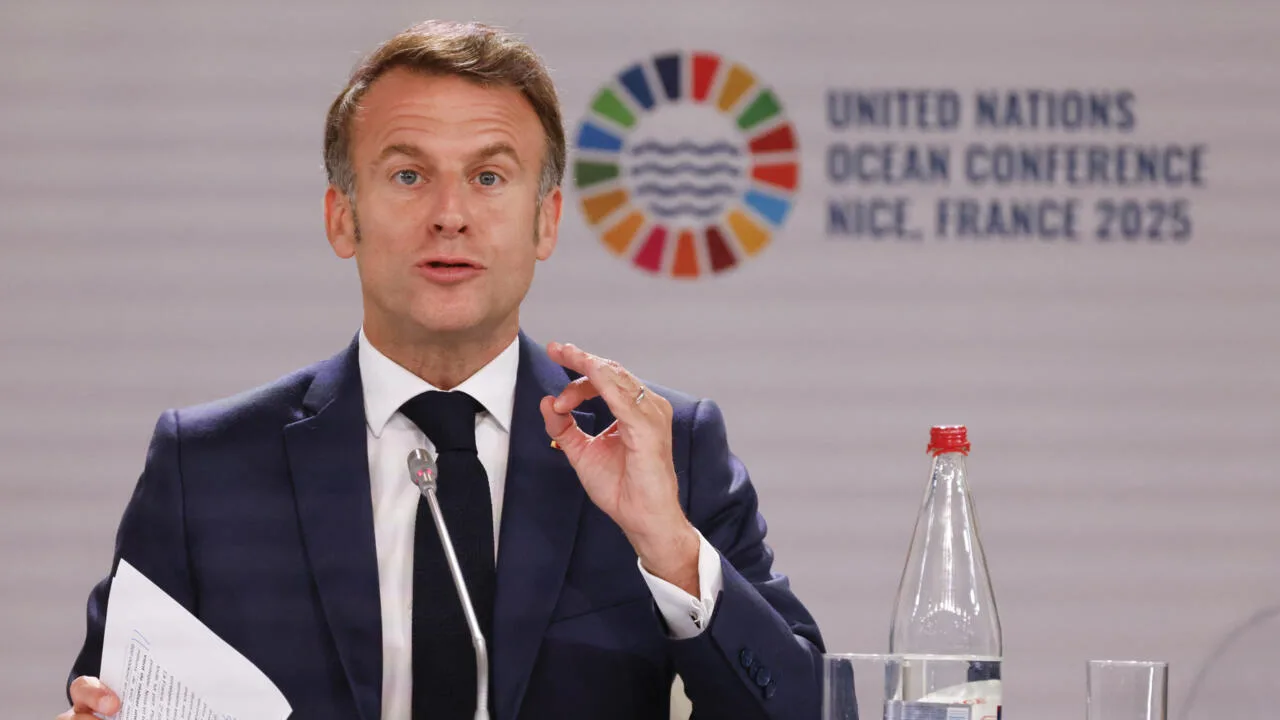French President Emmanuel Macron has voiced strong support for the territorial integrity of Greece and Cyprus, linking marine conservation with national sovereignty during his keynote speech at the 3rd United Nations Ocean Conference (UNOC) in Nice on Monday.
“If we want to safeguard 30 percent of protected marine areas, if we want to combat illegal fishing, if we want to support our science, we must protect the Exclusive Economic Zones,” Macron told delegates.
“We must be unwavering when the territorial sovereignty of our allies is threatened – and I am referring to our Greek or Cypriot friends.”
The French leader’s remarks come amid rising geopolitical tensions in the Eastern Mediterranean and reinforce France’s longstanding support for Greece and Cyprus within the framework of European defence and solidarity.
Macron also argued that ocean protection should be integrated into the European Union’s broader security agenda.
“In the efforts for security and defence made by all Europeans, with the support of the European Commission, the agreement on the oceans should be included,” he said.
Responding with a major national announcement, Greek Prime Minister Kyriakos Mitsotakis used the conference platform to unveil plans for two new marine parks in the Ionian Sea and the Southern Cyclades. He said legal procedures for their establishment would begin by the end of June.
“I am happy to announce that Greece has taken a very important step in marine protection at the national level. Before the end of this month we will start the legal process to create two new national marine parks, one in the Ionian Sea and another in the Southern Cyclades in the Aegean Sea, as a first phase with more to come,” Mitsotakis told the gathering.
He added that the parks would feature “state-of-the-art monitoring” and be governed through “effective governance in collaboration with NGOs.”
Both announcements tie into the global “30×30” commitment, a 2022 agreement by nearly 200 countries to protect 30 percent of the world’s oceans by 2030. Currently, only 2.7 percent of global ocean waters are fully protected from extractive activities, according to the Marine Conservation Institute.
The UNOC, co-hosted by France and Costa Rica, continues through 13 June and is convening world leaders, policymakers and scientists to accelerate efforts to safeguard marine biodiversity.
Source: Ekathimerini
